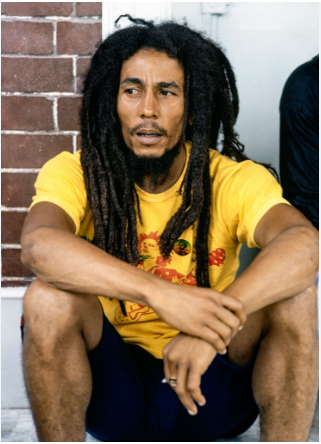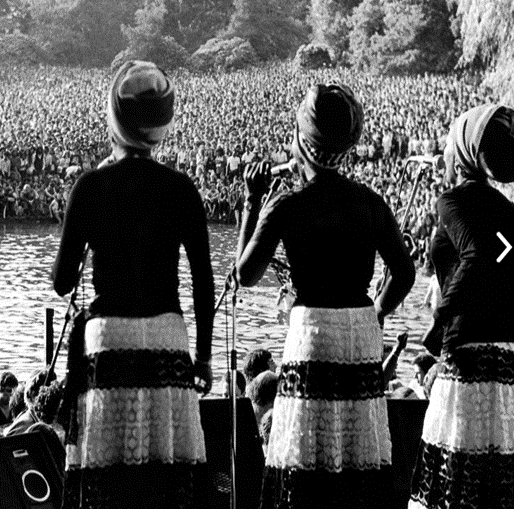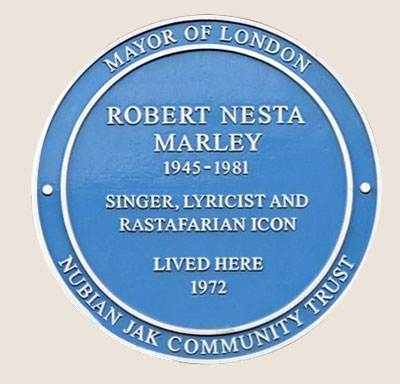

Bob Marley was a global reggae superstar and one of Jamaica’s best known musicians. Marley's contributions to music and culture brought Jamaican music and Rastafarian lifestyle to an international audience, and his time spent in London was integral to his life and career.
Bob Marley and the Wailers have two NJCT plaques in London.
1) Blue Plaque: 34 Ridgemount Gardens, Camden, London WC1E. In October 2006, in partnership with the Lord Mayor, the Nubian Jak Community Trust installed a blue plaque to the musician in Bloomsbury, where he lived when he first moved to London in 1971.
It was the first commemorative event organised by the Nubian Jak Community Trust, as well as being County Hall’s first ever blue plaque.
The installation of the Bob Marley plaque was also filmed as a feature for a 90-minute Arena documentary aired on BBC1 the following October called ''Bob Marley: Exodus 77."
This was dedicated to Bob Marley, Peter Tosh, and Bunny Wailer at the former site of the legendary Basing Street Recording Studios in West London where The Wailers' albums Catch a Fire and Burnin' were completed, as well as the Bob Marley and the Wailers album Exodus.
2) Bespoke and Rasta plaque at 8-10 Basing Street Studios:
Born in Nine Mile, British Jamaica, Marley began his professional musical career in 1963, after forming Bob Marley and the Wailers. The group released its debut studio album The Wailing Wailers in 1965, and subsequently released eleven further studio albums.
Bob Marley moved to London after the group had released their album The Best of The Wailers (1971). The Wailers released Catch a Fire and Burnin' (both 1973) and forged a reputation as touring artists.
Marley released his solo material under the band's name. His debut studio album Natty Dread (1974) received positive reception, as did its follow-up Rastaman Vibration (1976).
A few months after the album's release Marley survived an assassination attempt at his home in Jamaica, which prompted him to relocate to London. During his time in London, he recorded the album Exodus (1977); it incorporated elements of blues, soul, and British rock and enjoyed widespread commercial and critical success.
In 1977, Marley was diagnosed with acral lentiginous melanoma; he died as a result of the illness in 1981. His fans around the world expressed their grief, and he received a state funeral in Jamaica. The greatest hits album Legend was released in 1984, and became the best-selling reggae album of all time.
Marley ranks as one of the best-selling music artists of all time, with estimated sales of more than 75 million records worldwide. He was posthumously honored by Jamaica soon after his death with a designated Order of Merit.
In 1994, he was inducted into the Rock and Roll Hall of Fame. Rolling Stone ranked him No. 11 on its list of the 100 Greatest Artists of All Time. In 2019, English Heritage also honoured Marley with a blue plaque at the London house he lived at when he finished recording Exodus at 42 Oakley Street, in Chelsea. .

